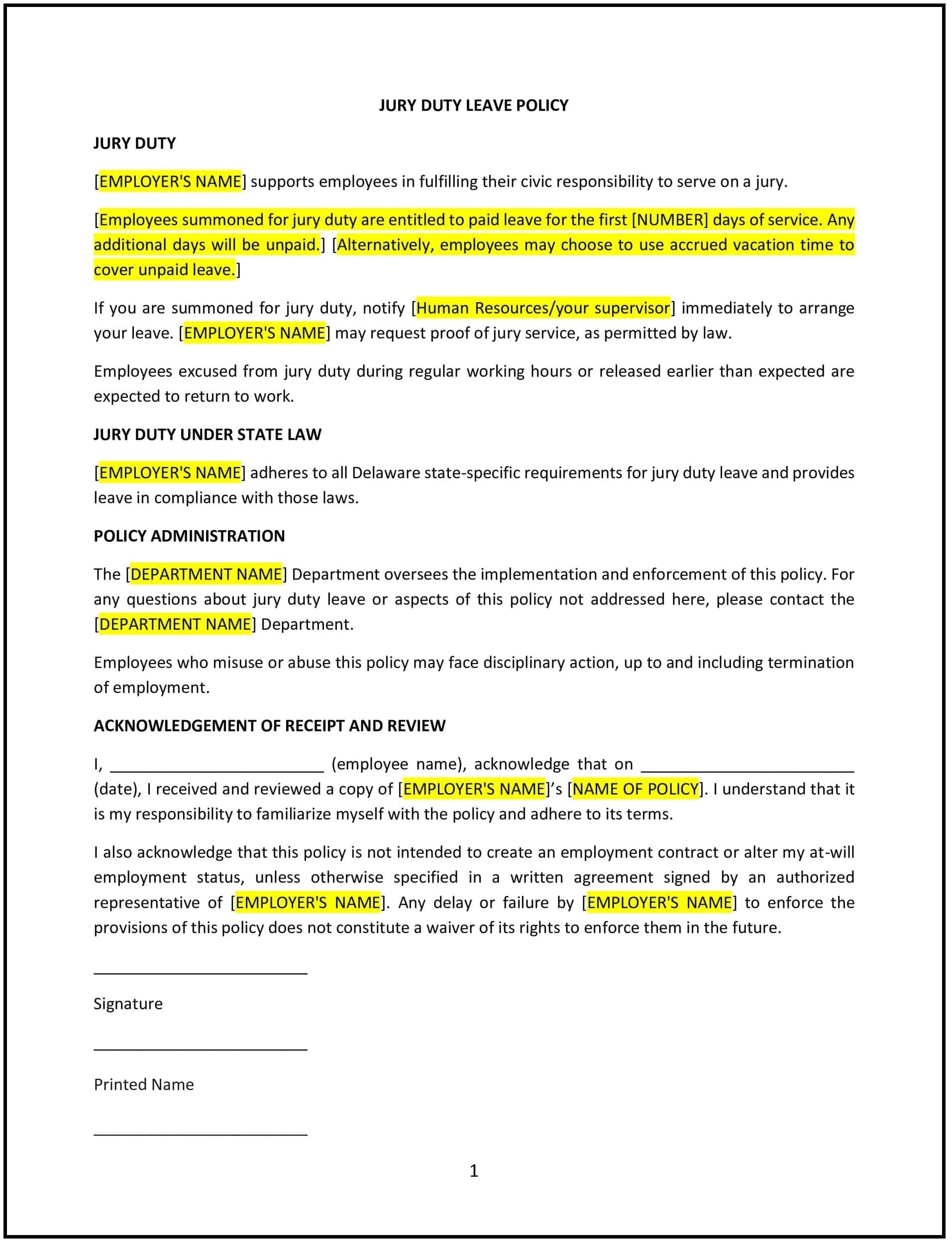Got contracts to review? While you're here for policies, let Cobrief make contract review effortless—start your free review now.

Customize this template for free
Jury duty leave policy (Delaware)
A jury duty leave policy helps Delaware businesses provide clear guidelines for employees summoned for jury service. This policy outlines employee rights, leave duration, pay practices, and procedures for notifying the employer, ensuring compliance with Delaware laws and supporting civic responsibilities.
By implementing this policy, businesses can foster employee trust, ensure legal compliance, and minimize disruptions.
How to use this jury duty leave policy (Delaware)
- Define eligibility: Clarify which employees are eligible for jury duty leave, such as full-time, part-time, or temporary workers.
- Outline notification requirements: Require employees to notify the company promptly after receiving a jury duty summons and provide a copy of the notice.
- Specify leave duration: State that employees are entitled to leave for the duration of their jury service, as required by Delaware law.
- Address pay practices: Explain whether employees will receive pay during jury duty leave and outline any applicable policies, such as using PTO or state-mandated compensation.
- Maintain job protection: Assure employees that their job will be protected during jury duty leave and that they will not face retaliation for fulfilling their civic duty.
- Provide a return-to-work process: Include instructions for employees to resume their duties after completing jury service.
Benefits of using this jury duty leave policy (Delaware)
This policy offers several benefits for Delaware businesses:
- Ensures compliance: Aligns with Delaware laws requiring employers to grant jury duty leave and protect employees’ jobs.
- Supports civic responsibility: Encourages employees to fulfill their legal obligations as jurors without fear of workplace consequences.
- Builds employee trust: Demonstrates the company’s commitment to fairness and respect for employees’ rights.
- Minimizes workplace disruption: Provides clear procedures for managing leave, ensuring smooth operations during employees’ jury service.
- Reduces legal risks: Clearly communicates rights and responsibilities to avoid disputes or misunderstandings.
Tips for using this jury duty leave policy (Delaware)
- Communicate the policy clearly: Ensure employees understand their rights and responsibilities regarding jury duty leave.
- Track leave: Maintain records of jury duty leave to manage schedules and ensure compliance with Delaware laws.
- Provide flexibility: Offer support to employees, such as assistance with adjusting workloads or reassigning tasks during their leave.
- Stay informed: Monitor changes in Delaware laws to ensure the policy remains compliant with updated requirements.
- Encourage prompt notice: Remind employees to inform the company as soon as they receive a jury summons to allow for scheduling adjustments.